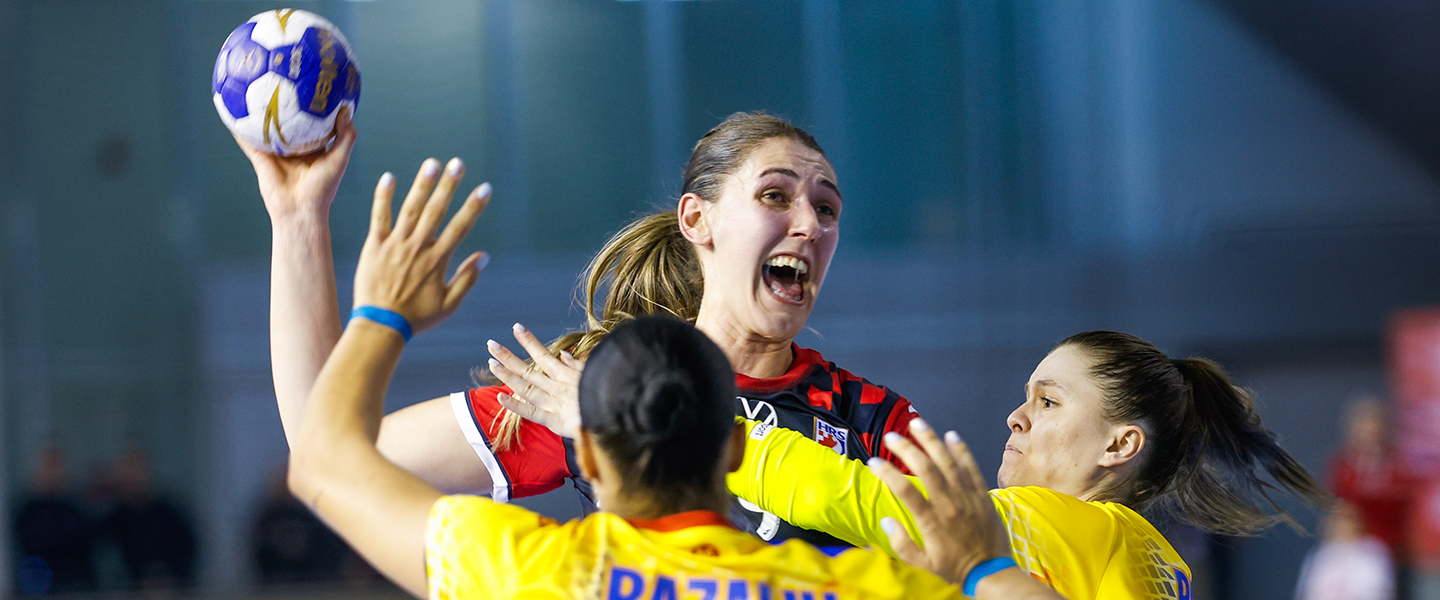20 teams complete line-up at the Women's EHF EURO 2024
07 Apr. 2024

20 teams are now ready to continue their journey at the Women’s EHF EURO 2024, joining co-hosts Austria, Hungary and Switzerland and reigning champions Norway, in the first-ever edition of the European premium competition with 24 teams at the start, an uptick of eight teams from the traditional 16-team line-up.
The last tickets were awarded after the EHF EURO 2024 Qualifiers ended this weekend, with powerhouses sealing their tickets with ease, while two other sides – Türkiye and the Faroe Islands – are due to make their debut, after being two of the best four third-placed sides in the Qualifiers.
Reigning world champions France pulled no punches in their preparation for the Paris 2024 Olympic Games, where they will try to retain the title sealed at Tokyo 2020, clearly dominating their opponents, with the best attack and the best defence in the six matches played in Group 4.
Two clear wins against Latvia – 55:8 and 53:9 – underlined France’s strength, as France finished the group with 270 goals scored in six matches and only 88 goals conceded. Olympic hopefuls Slovenia, which will also feature in the Olympic Qualification Tournament #3 in Neu-Ulm, Germany, this week, joined France and qualified from this group.
France’s left wing Chloe Valentini was the top scorer of the Qualifiers, with 46 goals, three more than Azerbaijan’s Kamila Bayramova, with Faroe Islands’ Jana Mittun being the third best scorer, with 38 goals.
Eight teams had a 100% winning record, with the 2023 IHF Women’s World Championship bronze medallists, Denmark, convincingly won Group 8, with two wins against Poland and two wins against Kosovo each, while Poland finished second, with two wins against Kosovo.
Romania, which is undergoing a major shake-up after Cristina Neagu, a four times IHF Female World Player of the Year, and Crina Pintea retired from international handball, but Florentin Pera’s side clinched six wins out of six matches, including two hard-fought wins against Croatia, 25:23 and 26:24, with the bronze medallists at the EHF EURO 2020 also making it through.
Germany had no issues against Ukraine, Slovakia and Israel in Group 2, with six wins and 227 goals scored, as Ukraine managed to sneak through after a hard-fought draw against Slovakia in the last match, 25:25, with the decisive goal coming with only six seconds left. Slovakia, coached by Jorge Duenas, will make their third appearance, after the ones in 1994 and 2014, as the best third-placed team.
Despite resting key players in their last two matches, the Netherlands secured six wins in Group 3, also scoring 212 goals in their six outings. Czechia, another team which will feature in the Olympic Qualification Tournaments, facing Netherlands in Torrevieja, Spain, finished second, after a 25:22 hard-fought win against Portugal, while Portugal return to the final tournament for the first time since 2008, finishing third.
Spain and North Macedonia made it from Group 5, while one of the most balanced groups was the one containing Montenegro, Serbia, Türkiye and Bulgaria, with the first three teams progressing to the final competition.
Türkiye were the big surprise, as the draw against Serbia, 29:29, was decisive, also conceding a hard-fought loss against Montenegro, 28:30, helping their cause. Montenegro won the group with six wins in six matches, followed by Serbia, with seven points.
After the men’s team made their debut at the EHF EURO in January, the Faroe Islands’ women’s team also progressed as the fourth best third-placed side, having lost both matches against Sweden and Iceland, but boasting a better goal difference, -30, than Greece, -40.
Iceland are also returning to the competition for the first time since 2012, making their third appearance, while Sweden, which play in the Olympic Qualification Tournament in Debrecen this week, won all matches.
The EHF EURO 2024 will take place between 28 November and 15 December in four venues – Debrecen, Innsbruck, Basel and Vienna – with the final weekend taking place in the Austrian capital in the 12,000-seater Wiener Stadhalle.
The draw for the six preliminary round groups, with four teams each, is due to take place in Vienna on 18 April.
Photo: Jozo Cabraja / Kolektiff

